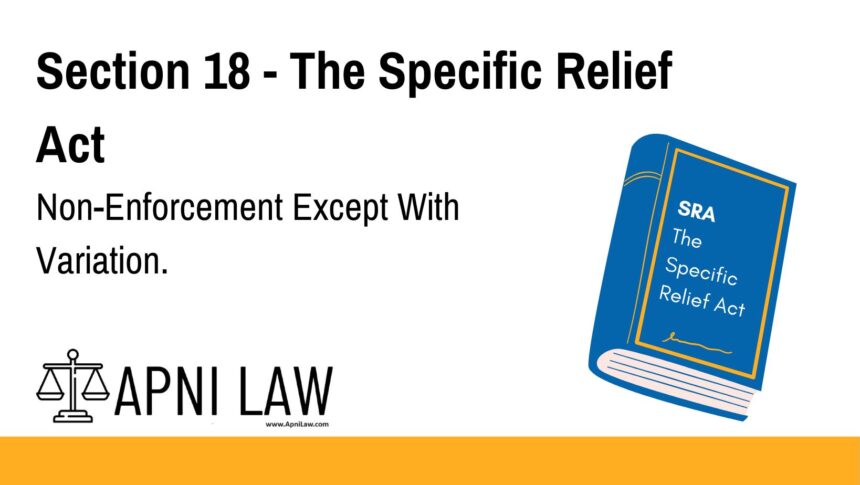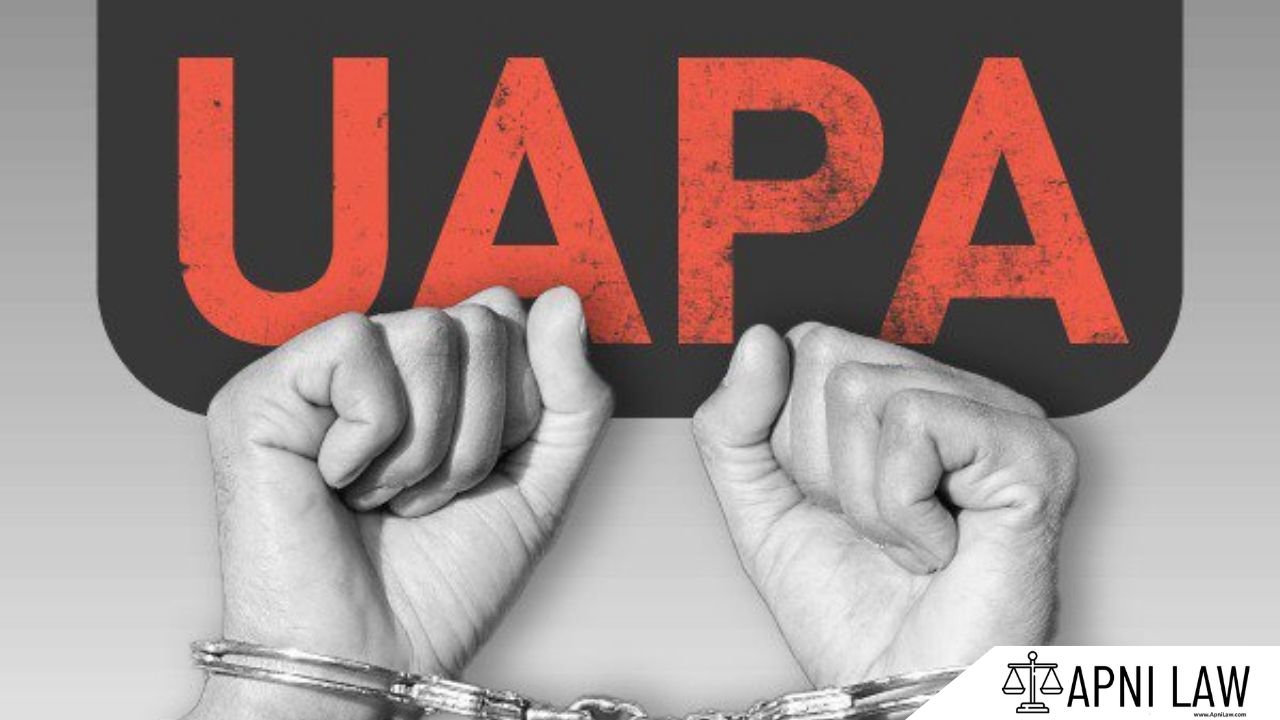Code: Section 18 of The Specific Relief Act
18. Non-enforcement except with variation
Where a plaintiff seeks specific performance of a contract in writing, to which the defendant sets up a variation, the plaintiff cannot obtain the performance sought, except with the variation so set up, in the following cases:
(a) where, by fraud, mistake of fact, or misrepresentation, the written contract of which performance is sought is in its terms or effect different from what the parties agreed to, or does not contain all the terms agreed to between the parties on the basis of which the defendant entered into the contract;
(b) where the object of the parties was to produce a certain legal result which the contract as framed is not calculated to produce;
(c) where the parties have, subsequently to the execution of the contract, varied its terms.
Explanation of Section 18:
Section 18 of the Specific Relief Act lays down the conditions under which a plaintiff cannot obtain specific performance of a written contract, except when the contract is subject to certain variations or modifications. It specifically addresses situations where discrepancies arise between the contract as written and the true intent of the parties.
Key Provisions:
- Fraud, Mistake, or Misrepresentation (Subsection (a)):
If the written contract differs from the parties’ actual agreement due to fraud, mistake of fact, or misrepresentation, the plaintiff cannot seek performance of the contract unless the variation is allowed. For example, if one party was deceived into signing the contract under false pretenses, the contract may need to be modified to reflect the true agreement. - Object of the Contract (Subsection (b)):
If the objective of the contract is to produce a certain legal result that the contract, as framed, does not achieve, the plaintiff cannot enforce the contract unless it is varied to align with the intended result. - Subsequent Variations (Subsection (c)):
If the terms of the contract have been altered after its execution, the plaintiff cannot seek specific performance of the contract unless the variation is considered in the enforcement process.
Illustration:
Example 1: Fraud or Misrepresentation
Anna contracts with Mark to buy a house, but Mark knowingly misrepresents the house’s condition, and the written contract reflects terms that do not align with what was agreed upon due to Mark’s misrepresentation. In this case, Anna cannot enforce the contract as it stands; any performance sought must include the necessary variations to correct the misrepresentation.
Example 2: Legal Result Not Achieved
Tom and Jane enter into a contract for the sale of land, intending to transfer the title to a property that is free of encumbrances. However, the contract, as written, does not ensure this result. Tom cannot seek specific performance of the contract unless it is modified to include provisions that ensure the transfer of clear title.
Example 3: Subsequent Variations
Sarah and John sign a contract for the sale of a car. After the contract is signed, Sarah agrees to deliver the car with new tires, and this is reflected in a revised version of the contract. Sarah cannot seek specific performance unless the new terms are incorporated into the enforcement of the contract.
Common Questions and Answers on Section 18:
1. Can I enforce a contract if it contains errors or misrepresentations?
No, if the contract differs from the original agreement due to fraud, mistake, or misrepresentation, the contract may need to be modified before specific performance can be sought.
2. What happens if the contract does not achieve the desired legal result?
If the contract is not framed in a way to achieve the legal result that both parties intended, specific performance cannot be obtained unless the contract is varied to achieve the intended result.
3. If the contract terms were changed after signing, can I still enforce it?
Yes, but only if the changes or variations are incorporated into the enforcement of the contract. You cannot enforce the contract as it was originally signed if the terms have been subsequently altered.
Conclusion:
Section 18 of the Specific Relief Act provides a framework for when a plaintiff can or cannot seek specific performance of a contract in writing. It prevents the enforcement of contracts that are flawed due to fraud, mistake, or misrepresentation, and requires modifications to ensure that the true intentions of the parties are reflected. Additionally, it allows for the enforcement of contracts that have been subsequently varied, as long as those variations are acknowledged and included in the enforcement process.








